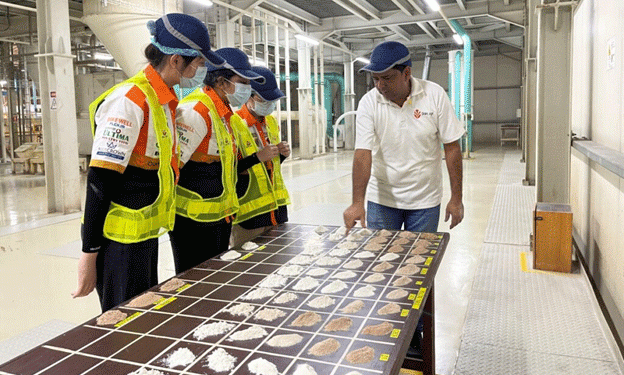Nigeria, one of the world’s largest wheat importers, faces significant challenges in domestic wheat production, including climate constraints and financial barriers for farmers. Olam Agri, a Singapore-based agribusiness leader, has unveiled a transformative solution—a heat-tolerant, early-maturing durum wheat variety designed specifically for Nigeria’s dry harmattan season. This initiative aligns with Olam Agri’s commitment to improving food security and empowering local agricultural communities.
Addressing Local Challenges
Olam Agri’s efforts are part of the “Seeds for the Future” project launched in 2021, which focuses on developing wheat varieties suited to Nigeria’s unique environmental conditions. Collaborating with the International Centre for Agricultural Research in Dry Areas (ICARDA), Olam Agri tackled key barriers to wheat cultivation:
- Climate Adaptability: Traditional wheat varieties struggled in Nigeria’s heat and drought conditions.
- Crop Cycle Issues: Long-growing varieties interfered with rice planting schedules, a critical crop for local farmers.
- Limited Support: Farmers lacked access to financial resources and agronomic expertise to expand wheat production.
The Crown Wheat Variety
The new Crown wheat variety offers several advantages:
- Early Maturity: It matures quickly, enabling farmers to plant rice in subsequent seasons without delay.
- Heat Tolerance: Developed to withstand the harmattan season, it thrives in Nigeria’s arid climate.
- High Yield: Preliminary trials indicate excellent yield potential, meeting local consumption needs.
- Pasta Quality: The variety is suited for pasta production, directly supporting Crown Flour Mills, Olam’s subsidiary and a key player in Nigeria’s wheat and pasta market.
Rollout and Scaling
In December 2024, Olam Agri began rolling out the Crown variety with a pilot program:
- Seed Distribution: An initial 100 kilograms of seeds were distributed to 10 farmers.
- Support and Training: Farmers received agronomic training and financial assistance to ensure optimal cultivation practices.
- Seed Multiplication: These farmers are expected to produce three tonnes of certified seeds for further scaling, aiming for 30 tonnes for broader community use before full commercialization.
Economic and Social Impact
Nigeria imports over 90% of its annual wheat demand, valued at approximately US$2 billion in 2023. Major suppliers include Poland, Canada, and Russia. By promoting domestic wheat production, Olam Agri’s initiative has the potential to:
- Reduce Nigeria’s dependency on costly imports.
- Alleviate economic strain on the nation’s economy.
- Provide Nigerian farmers with a lucrative alternative crop.
- Enhance resilience in the face of global market fluctuations and supply chain disruptions.
The introduction of Olam Agri’s Crown wheat variety marks a significant step toward transforming Nigeria’s wheat production landscape. By addressing key cultivation challenges, providing farmer support, and emphasizing sustainable practices, this initiative has the potential to boost local production and reduce reliance on imports. The long-term vision of achieving self-sufficiency in wheat production will not only benefit farmers but also strengthen Nigeria’s food security and economy.
Error





